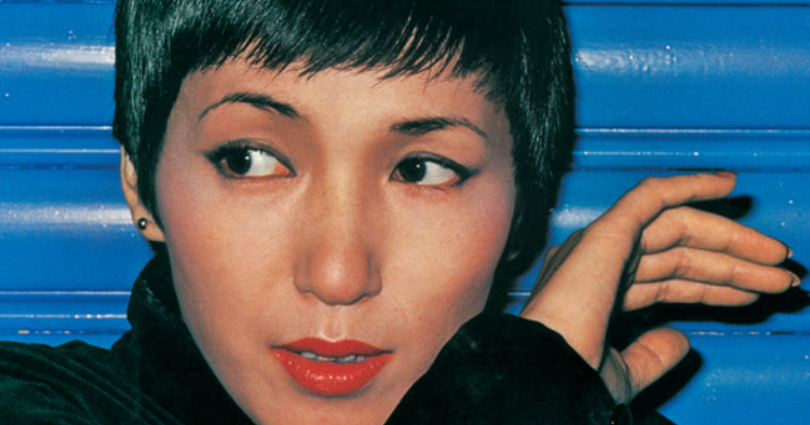Curated From randomjpop.blogspot.com Check Them Out For More Content.
%20Junko%20Ohashi%20passes%20away%20%231.png)
The post title pretty much says it all. But, yep. Queen Junko Ohashi has sadly passed away at the age of 73, following a battle with oesophageal cancer which she was first diagnosed with in 2018.
Here’s the message which was posted on her official website.
We are deeply saddened to inform you that Junko Ohashi, who had been recuperating for some time, passed away on November 9.
At the end of March 2023, recurrence of cancer was discovered during her routine check-up. Unfortunately, we had to suspend her activities again.
She was very disappointed to hear this, and she had been working hard on treatment and rehabilitation with the aim of returning to work while building up her strength.
However, due to the sudden change in her condition, we had to make a regrettable announcement.
In recent years, due to Junko’s own illness, as well as the period of restraint during the coronavirus, she has not been able to fulfill all the activities she wanted to try, but she still had reunions with people she had worked with since she was a newcomer. Even in her 70s, she was still seeking new musical encounters and evolution, enjoying various stages and recordings that transcended generations and genres.
She has a big sisterly personality, and she showed us her back (the way she sings) without ever being arrogant.
Sadly, we can no longer hear her singing voice live, but the works that Junko Ohashi poured her soul into are now heard not only in Japan but also all over the world, beyond the sea, and we believe that she will be remained in everyone’s hearts forever.
We would like to express our sincere appreciation to all of her fans and everyone involved for their support.
Losing somebody is difficult even under what you could consider ‘good’ circumstances. But at least those close to Junko got to have a moment of grief without the whole world knowing, and break the news in their own time. Despite passing away on November 9th, only in the past 12 or so hours was her passing made public. Also, Japan don’t play with litigation when it comes to things run in the papers.
I really detest this age of TMZ that we’re in, where news of people falling ill and passing away becomes a scoop, with medical professionals leaking accounts, photos and the whole world knowing things before the nearest and dearest do. It’s fucking disgusting.
%20Junko%20Ohashi%20passes%20away%20%232.png) |
| Junko Ohashi – Magical (1984) | Universal Music |
Junko is considered a part of a select roster of acts who were a prominent part of the city pop boom in the 80s. And decades later, she continued to be considered part of the soundtrack of the sound, with albums and songs of hers featuring regularly in people’s city pop primers. In a similar fashion to the likes of Mariya Takeuchi’s “Plastic Love”, Junko Yagami’s “Bay City” and Taeko Onuki’s “4:00 A.M.”, Junko also saw her popularity soar in the 2000s as a result of YouTube algorithms recommending her music. There’s a high likelihood that if the YouTube city pop algorithm got you, that you heard Junko’s song “I Love You So” from her compilation album Magical, famed for its album cover of the New York skyline featuring the Twin Towers, shot by Masaharu Uemura. Complete with a clean design that Gen Z’ers would probably say looks Taylor Swift’s Midnights.
HENNYWAY.
Junko had a bright career in the 70s and 80s, known for her soulful voice, short hair (which wasn’t a common look for women in Japan back then), red lipstick and always having her nails did. And she continued to perform right up into her 60s, still sporting her signature short hair, red nails and looking like a rich bitch. Throughout the years, she had lost none of the magic she was known for. She could still sing “Simple Love” in her 50s and get everybody on their feet. Or sing “Silhouette Romance” in her 60s and have the entire audience stir. And even in passing, her magic will live on through her music and the impact she left behind.
Hopefully as the years go on, those who own the rights to her music will honour her legacy by making her full discography widely available, uploading classic music videos and performances of hers to YouTube and re-press some of her albums. I have concerns about what streaming has done to devalue music. But I still think making music accessible is important. Especially when it comes to classic acts who were big and notable prior to the digital age of music; as not to limit their reach and prevent people catching onto the greatness of their art and talent. Junko’s music shouldn’t be ringfenced or gatekept, and neither should her legacy.
%20Junko%20Ohashi%20passes%20away%20%233.png) |
| Junko Ohashi & Minoya Central Station – Flush (1978) | Universal Music |
Make sure you run up “Simple Love” today and forever y’all.
Junko Ohashi (1950 – 2023)
